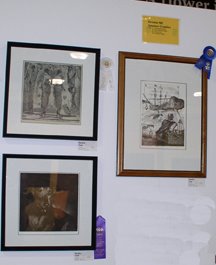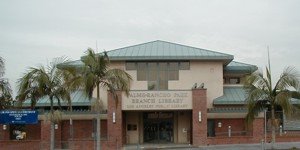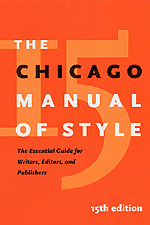Wrong. Throughout the country, a shortage of qualified staff, unclear assignments of responsibility, and inadequate equipment make it entirely possible that someone taken into custody can leave it without being fingerprinted.
For example, from "Fingerprint law could help police, hurt jailers," in yesterday's Louisville Courier-Journal:
...because many jailers have not fingerprinted everyone booked at their jails, fewer than half of the more than 300,000 people arrested in Kentucky last year are entered in the state and national databases....Think about the implications for a moment. Studies have shown that "as many as half of criminals who commit violent crimes have nonviolent criminal histories...." That means that the guy taken into custody on a drug possession or vandalism charge could be the one who committed a rape or a robbery. Who knows how many crimes went unsolved as a result of more than 150,000 suspects passing through Kentucky jails without being fingerprinted? How many background checks for employment, child care, or adoptions failed to show arrest records?
There had been some disagreement over whether arresting officers or jails had the responsibility for fingerprinting those taken into custody, but a state law just went into effect to clarify the matter -- jailers have responsibility. And Kentucky provided Livescan electronic fingerprinting units to all 74 of its jails. But the jails are complaining -- they don't have the trained staff available, and no funds were allocated to help them pay for more staffing.
Lest you think this is a problem only in Kentucky -- on May 8, 2006, a Des Moines Register story, "Audit report points to holes in fingerprinting at Polk County jail," indicated that
Twenty percent of arrests by Polk County sheriff's deputies weren't reflected in state fingerprint records, according to the audit's sampling. The figure was 24 percent in Pleasant Hill and an "extremely high" 40 percent in Des Moines, where police arrest more than 4,000 people each year.On the CLP Forum, you'll find a similar story from Florida: CLP Forum: Private Jail Company to Resume Fingerprinting in FL county
The missing fingerprints were linked to arrests on charges such as robbery, theft, domestic abuse causing injury, drug possession, harassment, drunken driving and assault with a dangerous weapon, among others.
Interoperability, as previously mentioned, is a big problem with fingerprint databases, but any database needs entries in order to be of value. Forensic science works largely by comparison of an unknown example to a known, so entries make a difference. The assistance law enforcement receives from fingerprints/latent print examination is enormous. Fingerprints are believed to be more individual than DNA as identifiers -- fingerprints can differentiate identical twins, DNA cannot. And it is far less inexpensive and time consuming to process fingerprints than it is to process DNA.
Do you know your local situation? Does your state have clearly defined guidelines, an auditing system, equipment in place, and the trained staff needed to keep up with the demand?
Ask. Find out if your local newspaper has looked into this issue.
You may save a life.







